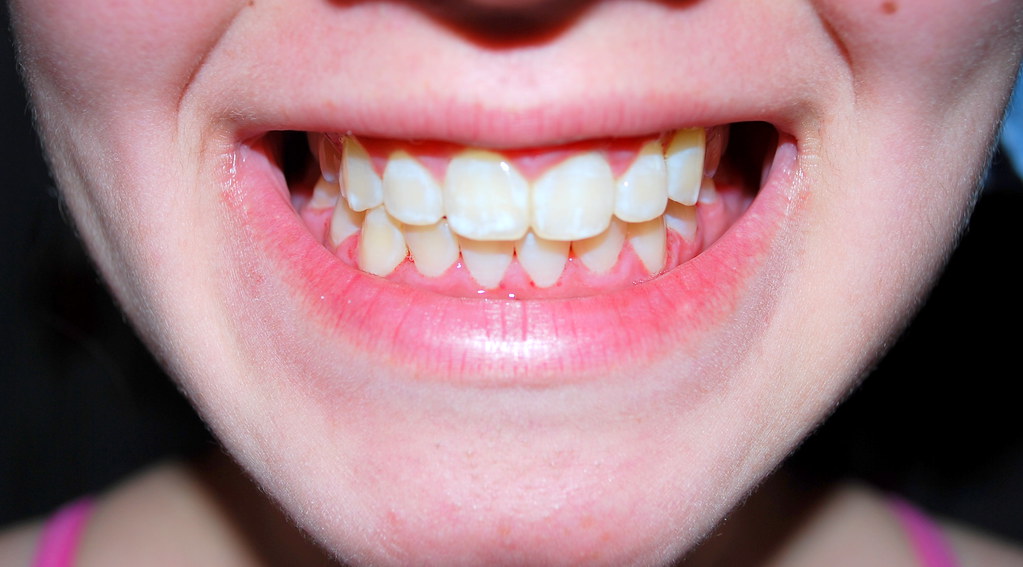With periodontal disease, the longevity of your teeth can vary, but early detection and treatment can help prolong their lifespan. Proper oral hygiene and regular dental check-ups are essential for maintaining healthy teeth and managing periodontal disease.
Neglecting treatment can lead to tooth loss and other complications. Periodontal disease, also known as gum disease, is a common condition that affects the tissues surrounding the teeth. It can lead to gum recession, bone loss, and ultimately tooth loss if left untreated.
Understanding the impact of periodontal disease on tooth longevity is crucial for individuals looking to preserve their oral health. We will explore the relationship between periodontal disease and tooth retention, as well as the importance of early intervention and effective management strategies in maintaining a healthy smile.
Introduction To Periodontal Disease
Periodontal disease can lead to tooth loss if left untreated. With proper care and treatment, you can maintain your teeth for a lifetime despite having periodontal disease. Regular dental check-ups and good oral hygiene are key to preserving your teeth health even with this condition.
The Basics Of Gum Health
Periodontal disease is a condition that affects the gums and bone supporting the teeth. It is caused by bacteria in plaque, leading to inflammation and potential damage if left untreated.
Progression Of Periodontal Disease
Gum health is essential for overall oral health. Early stages of periodontal disease can be reversible with proper dental care. As the disease progresses, it can result in gum recession, tooth mobility, and even tooth loss.

Credit: murphydentalfc.com
Factors Affecting Tooth Longevity
Maintaining good oral hygiene practices can help to prolong the lifespan of your teeth, even with periodontal disease. However, factors such as genetics, diet, and lifestyle habits can also affect tooth longevity. Regular dental checkups and cleanings can help identify and address any issues before they become more severe.
Genetics And Tooth Survival
Impact Of Lifestyle Choices
Factors affecting tooth longevity are crucial for individuals with periodontal disease. Genetics and Tooth Survival: – Genetics play a significant role in determining tooth survival. – People with a family history of dental issues may be predisposed to early tooth loss. – Inherited factors can influence the progression of periodontal disease. – Understanding your genetic predispositions can help you take preventive measures. Impact of Lifestyle Choices: – Healthy habits such as regular brushing and flossing can improve tooth longevity. – Avoiding smoking and excessive alcohol consumption benefits dental health. – Diet choices rich in nutrients can strengthen teeth and gums. – Regular dental check-ups can catch issues early and prolong tooth survival.Early Stage Periodontal Disease
In the early stage of periodontal disease, you can keep your teeth for many years with proper treatment and maintenance. It’s essential to address the issue early to prevent further damage and maintain oral health. With good oral hygiene and regular dental check-ups, you can prolong the life of your teeth even with periodontal disease.
Early Stage Periodontal Disease Signs and Symptoms In the early stages of periodontal disease, also known as gingivitis, the signs and symptoms may be mild and easily overlooked. Common signs of early stage periodontal disease include gums that are red, swollen, and tender. Additionally, you may notice gums that bleed easily during brushing or flossing. Bad breath and a persistent bad taste in the mouth are also common symptoms of early stage periodontal disease. Interventions and Treatments To address early stage periodontal disease, it is crucial to practice good oral hygiene. This includes brushing twice a day with a fluoride toothpaste and flossing daily to remove plaque and prevent its buildup. Additionally, regular dental check-ups and professional cleanings are essential to monitor and manage the condition. In some cases, a dental professional may recommend antibacterial mouth rinses or antiseptic chips placed in the pockets between the gums and teeth to help control the infection. By addressing the signs and symptoms early and following a thorough oral hygiene routine, individuals can effectively manage and even reverse the effects of early stage periodontal disease.
Credit: cloudmineinc.com
Advancing Periodontal Disease
Advancing periodontal disease can pose serious risks to the health and longevity of your teeth. As the condition progresses, it can lead to more severe complications and may require aggressive treatment options to manage effectively.
Complications That May Arise
As periodontal disease advances, it can lead to a range of complications that can impact both oral and overall health. These may include tooth loss, receding gums, bone deterioration, and an increased risk of systemic health issues such as cardiovascular disease and diabetes.
Aggressive Treatment Options
When periodontal disease reaches an advanced stage, aggressive treatment options may be necessary to halt its progression and restore oral health. These may include surgical interventions such as flap surgery and bone grafts, as well as antibiotic therapy and ongoing periodontal maintenance to manage the condition effectively.
Maintaining Dental Health With Periodontitis
Periodontal disease, commonly known as gum disease, can have a significant impact on the health of your teeth and gums. It’s essential to understand how to maintain good dental health while dealing with periodontitis. By incorporating proper daily oral hygiene practices and seeking professional care, you can prolong the longevity of your teeth and preserve your oral health.
Daily Oral Hygiene Practices
Consistent and effective oral hygiene practices are crucial in managing periodontitis. Brushing your teeth twice a day with a soft-bristled toothbrush and using antibacterial toothpaste can help reduce plaque and bacteria. Flossing daily is also important to remove plaque from between the teeth and along the gumline.
Professional Care And Maintenance
Regular visits to a dental professional are essential for individuals with periodontitis. Professional cleanings can remove plaque and tartar buildup that cannot be effectively addressed through at-home oral care. Additionally, dentists can provide treatment such as scaling and root planing to address the effects of periodontal disease and prevent further damage.

Credit: abingtoncenter.com
Surgical Treatments And Tooth Retention
When it comes to dealing with periodontal disease, surgical treatments play a crucial role in preserving the health and retention of your teeth. Understanding the options available for tooth retention through surgical procedures can help you make informed decisions about your oral health.
Gum Grafting And Regeneration
Gum grafting is a surgical procedure that involves taking healthy gum tissue from one area of the mouth and using it to cover exposed tooth roots or augment the gum line in areas affected by periodontal disease. This procedure helps to protect the roots of the teeth and promote gum tissue regeneration, ultimately supporting tooth retention.
Bone Surgery And Implants
Bone surgery may be necessary to address advanced periodontal disease that has led to bone loss around the teeth. In such cases, dental implants can be a viable option for tooth retention. These implants are surgically placed into the jawbone to provide a stable foundation for replacement teeth, effectively restoring functionality and aesthetics.
Living With Periodontal Disease
Living with Periodontal Disease can present challenges, but with proper care, maintaining good oral health is possible.
Adjusting Diet And Habits
Eating nutrient-rich foods and avoiding sugary snacks can help support overall oral health.
Drinking plenty of water and limiting acidic beverages can prevent further damage to teeth and gums.
- Avoid tobacco products, as they can worsen periodontal disease and impact healing.
- Regularly brushing and flossing can help reduce plaque buildup and prevent gum inflammation.
Ongoing Management And Monitoring
Regular dental check-ups are essential to monitor the progression of periodontal disease.
Professional cleanings and treatments can help control infection and prevent tooth loss.
- Maintaining good oral hygiene habits at home is crucial for managing periodontal disease.
- Following the dentist’s recommendations for treatment and maintenance is key to preserving teeth.
Success Stories And Hope
Periodontal disease can lead to tooth loss, but with proper treatment and care, you can maintain your teeth for a lifetime. Success stories and hope abound for those who diligently manage their periodontal disease, ensuring the longevity of their teeth.
Regular dental check-ups and good oral hygiene are key to preserving your smile.
Real-life Cases Of Tooth Retention
Innovations In Periodontal Treatment
In the realm of periodontal disease, success stories and hope play a vital role in inspiring individuals struggling with this condition. Real-life cases show that with proper treatment and care, teeth can be retained even in advanced stages of periodontal disease. Innovations in periodontal treatment have brought about new methods and technologies to help individuals maintain their teeth despite the challenges posed by the disease. In real-life cases, individuals have successfully retained their teeth through diligent oral hygiene practices and consistent periodontal treatment. These success stories serve as beacons of hope for others facing similar challenges, highlighting the importance of early detection and intervention. The field of periodontics has witnessed remarkable innovations in recent years, such as laser therapy, minimally invasive surgical techniques, and advanced antibiotics. These advancements have revolutionized the way periodontal disease is treated, offering patients more effective and comfortable options for preserving their natural teeth. By sharing these success stories and advancements in periodontal treatment, we aim to instill hope and confidence in those navigating the complexities of periodontal disease. With the right care and support, individuals can overcome the challenges posed by this condition and maintain their oral health for years to come.Frequently Asked Questions
Will I Eventually Lose My Teeth With Periodontal Disease?
Yes, periodontal disease can cause tooth loss if left untreated. This disease damages the gums, bones, and tissues that support teeth, leading to loose teeth and eventual loss. Early detection and treatment are crucial in preventing tooth loss. Regular dental check-ups and good oral hygiene habits can help prevent periodontal disease.
Can Teeth Be Saved With Severe Periodontal Disease?
Yes, teeth can sometimes be saved with severe periodontal disease through treatments like deep cleaning and surgery.
Can I Keep All My Teeth With Periodontitis?
Yes, with proper treatment and care, you can maintain most of your teeth even with periodontitis. Regular dental check-ups are crucial.
Should I Have My Teeth Pulled If I Have Periodontal Disease?
Extraction may be necessary for severe cases of periodontal disease to prevent further damage. Consult a dentist for personalized advice.
Conclusion
Periodontal disease is a serious condition that affects many people worldwide. It is crucial to take care of your dental health to prevent the disease from progressing. If left untreated, periodontal disease can lead to tooth loss. However, with proper treatment and care, you can keep your teeth for a long time.
Regular dental check-ups, good oral hygiene, and a healthy lifestyle are essential in maintaining good dental health. Remember, prevention is always better than cure, so take good care of your teeth and gums to keep them healthy and strong.
